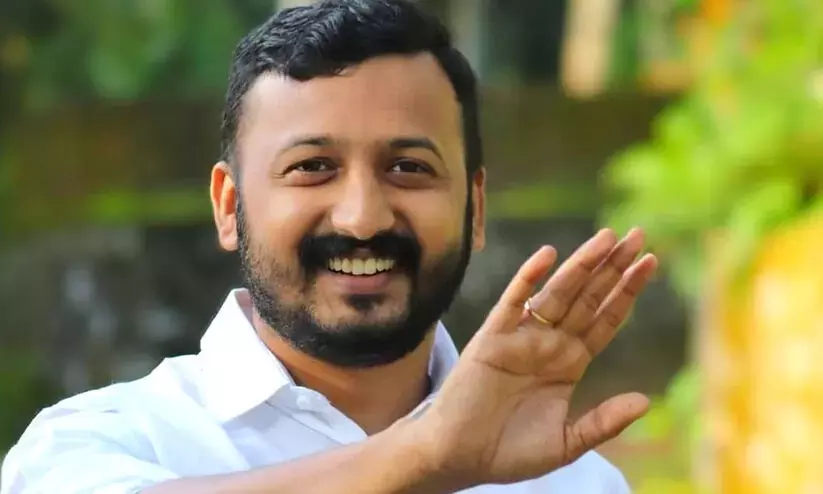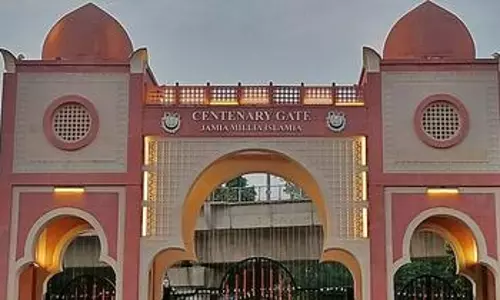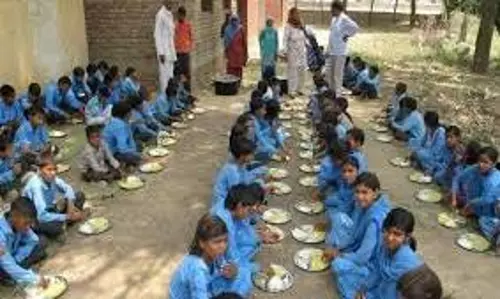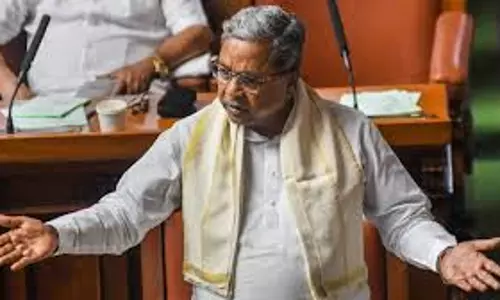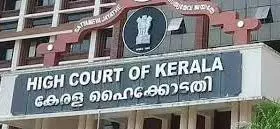
Kerala HC sets aside conviction of woman who killed her child citing mental stress
text_fieldsThe Kerala High Court on February 21 set aside a young woman's life sentence for suffocating her newborn in a landmark mental health ruling. Citing the Mental Healthcare Act of 2017, the HC stated that any individual who attempts suicide should be judged to have extreme stress and be seen "as a victim of circumstances and not an offender, in the absence of proof to the contrary."
A two-judge panel, comprised of Justices Raja Vijayaraghavan V and PV Balakrishnan, was hearing an appeal filed by a 27-year-old woman convicted by an Additional Sessions Court in the Thrissur district of smothering her three-and-three-quarters-month-old baby in 2010. Subsequently, the woman attempted suicide, the News Minute reported.
Setting aside the trial court's decision, the HC bench stated that it is unreasonable to convict and sentence someone who attempted suicide in the course of the events related to their alleged crime.
This is due to the legal presumption that every person who attempts suicide is under extreme mental stress until proven differently, and such an individual requires possibilities for healing and rehabilitation rather than punishment.
Mental stress and the law
The HC relied on Section 115 of the Mental Healthcare Act of 2017, which was enacted to decriminalise attempted suicide and aid in the rehabilitation of such individuals. The Act also seeks to protect the rights of those suffering from mental illnesses and to ensure that the government does not discriminate against them when providing healthcare.
Section 115 of the Act reads thus: “Notwithstanding anything contained in Section 309 (attempt to commit suicide) of the Indian Penal Code (IPC), any person who attempts to commit suicide shall be presumed, unless proved otherwise, to have severe stress and shall not be tried and punished under the said Code.”
In the trial court, public prosecutor Neema TV claimed that the woman had violated Sections 302 (murder) and 309 (attempted suicide) of the IPC. She stated that because the lady was alone with her child when the act was committed, it was her responsibility to prove what happened to the child and how she was injured.
The prosecution further stated that Section 115's exception only applies to attempted suicide and does not prevent an accused from being convicted of other crimes, including murder.
Advocate KV Sabu, the accused's counsel, claimed in the High Court that the prosecution had not shown the woman's motive for murder beyond a reasonable doubt.
He further stated that the protection from conviction under Section 115 of the Mental Healthcare Act applies to any act motivated by mental stress that leads to an attempt at suicide.
The HC agreed, stating that the Mental Healthcare Act is comprehensive, helpful legislation aimed at ensuring the rehabilitation and welfare of persons suffering from serious emotional issues.
“In other words, we may say that Section 115(1) of the Act creates an embargo in conducting trial and punishing a person who has attempted to commit suicide, not only for the offence under Section 309 IPC but also for any other offences under IPC committed in the course of the same transaction, unless it is proved that the person accused is not having severe stress,” the HC order read.
The HC further highlighted that the woman's trial was proceeding in 2018 when the Mental Healthcare Act took effect. “The trial court ought to have, in compliance with Section 115, desisted from proceeding with the trial of the case and pronouncing the judgement. It is to be noted that, in the present case, admittedly no material has been adduced to show that the accused is not having severe stress,” the court’s order stated.
HC emphasised the need to protect and empower persons experiencing acute mental stress through the Mental Healthcare Act. According to the bench, Section 120 of the Mental Healthcare Act takes precedence over other laws that may conflict with it.
The Bharathiya Nayaya Sanhita (BNS), which will replace the IPC in 2024, similarly decriminalises attempted suicide. However, Section 226 of the BNS states that suicide is illegal if it is intended to compel or restrain a public servant from performing their duties.
If you are aware of somebody suffering from mental illness or suicidal thoughts, please offer assistance. Here are some helpline numbers for suicide prevention organisations that provide emotional assistance to individuals and families.
Tamil Nadu
State Health Department's suicide helpline: 104
Sneha Suicide Prevention Centre - 044-24640050 (listed as the sole suicide prevention helpline in Tamil Nadu)
Andhra Pradesh
Life Suicide Prevention: 78930 78930
Roshni: 9166202000, 9127848584
Karnataka
Sahai (24-hour): 080 65000111, 080 65000222
Kerala
Maithri: 0484 2540530
Chaithram: 0484 2361161
Both are 24-hour helpline numbers.
Telangana
State government's suicide prevention (tollfree): 104
Roshni: 040 66202000, 6620200
SEVA: 09441778290, 040 27504682 (between 9 am and 7 pm
Aasara offers support to individuals and families during an emotional crisis, for those dealing with mental health issues and suicidal ideation, and to those undergoing trauma after the suicide of a loved one.
24x7 Helpline: 9820466726




